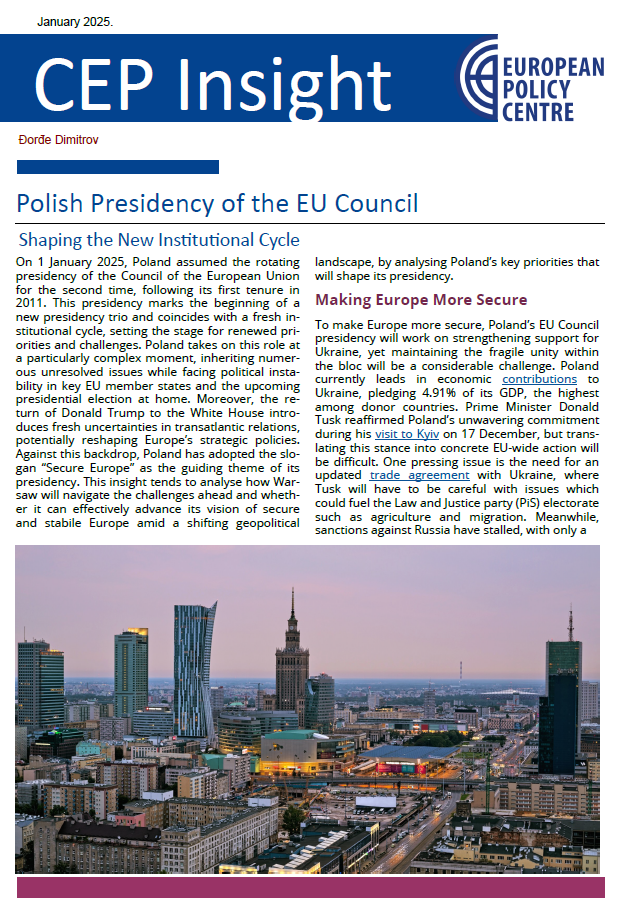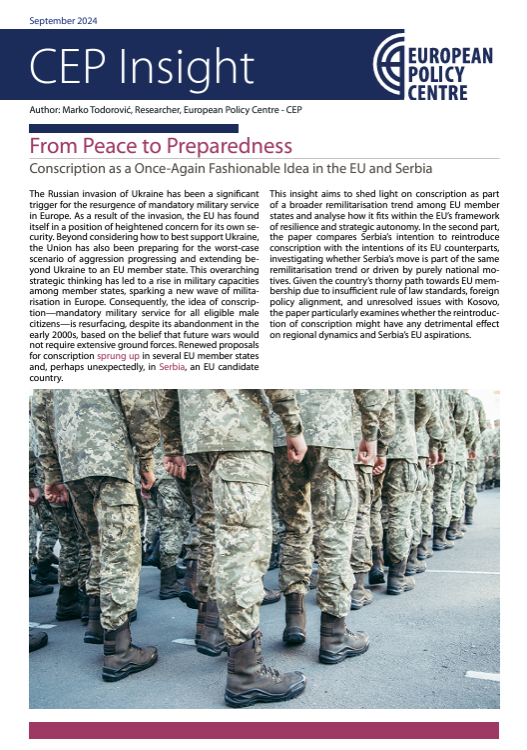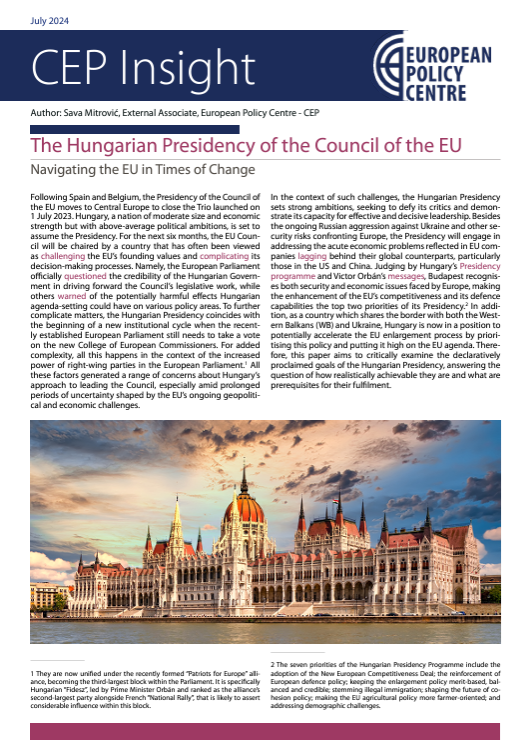Headquarters: Svetog Nauma 7, 11000
Office address: Đorđa Vajferta 13, 11000
Phone:: +381 11 4529 323
The Israeli-Palestinian conflict once again escalated on 7 October 2023, resulting in tens of thousands of casualties and a further exacerbation of the already delicate regional circumstances. Such an unexpected crisis underscores the persistent nature of this conflict, with each outbreak carrying implications felt far beyond the Middle East. This paper embarks on a nuanced exploration of the EU’s approach to the Israeli-Palestinian dispute, with a particular focus on the recent developments. Going beyond the official statements and commonplace narratives of EU foreign policy, it delves into the intricate internal dynamics of the EU and its member states, aiming to understand their various positions, motivations, and contradictions.
As the EU’s Israel-Palestine policy is dissected, the questions also arise: What is Serbia’s stance on this issue and is its position on this matter also a part of its both East and West geopolitical equation? Answering these questions is warranted, as Serbia continues to find itself in a delicate balancing act of nurturing its partnerships with the East, despite its official strategic priority being EU membership. Through rigorous analysis, the paper evaluates the extent of Serbia’s alignment with EU policies on the mentioned conflict and uncovers the multifaceted factors influencing its position. As the role of the Israel-Palestine conflict is examined as a litmus test for unity and diversity of opinions within the EU, Serbia’s standpoint is scrutinised, and broader questions regarding its policy alignment with the Common Foreign and Security Policy (CFSP) are addressed.


